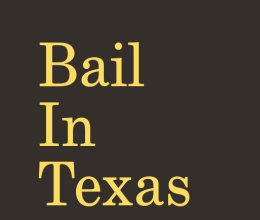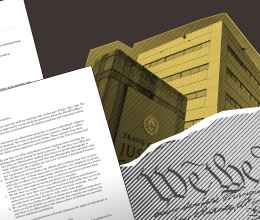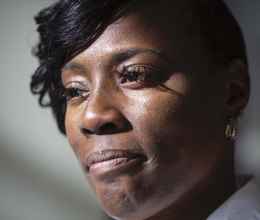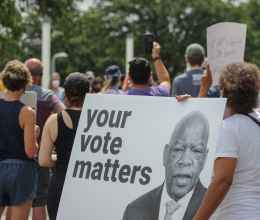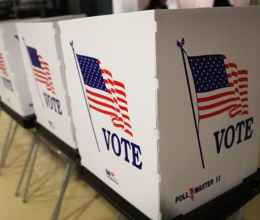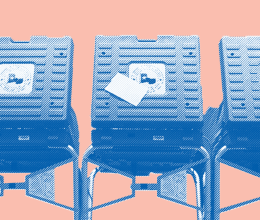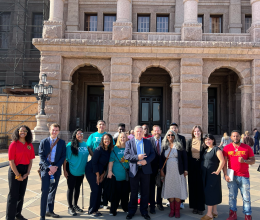
In the summer of 1990, the first Disability Pride Day was held to celebrate the newly passed Americans with Disabilities Act (ADA). Since then, July has become Disability Pride Month worldwide.
But passing the ADA wasn’t easy. Just months before its signing, over one thousand disabled people protested at the U.S. Capitol in a demonstration known as the “Capitol Crawl.” The group crawled up the 78 steps of the Capitol building — some abandoning their mobility devices — to demand federal protections for the rights of disabled people.
Thirty-one years after the landmark legislation passed, disabled people are still fighting for our right to exist — especially here in Texas.
Hostility toward the disability community is not new. From the “Ugly Laws” in the 1900s, to the eugenics movement that led the country to forcibly sterilize disabled people, to trapping disabled people in the poverty cycle, disabled people are continuously resisting erasure by society. Disabled people who also identify as Black, Indigenous, Brown, Muslim, poor, and/or trans experience additional discrimination and exclusion. These intersections cause certain individuals and communities to be disproportionately targeted by systems of oppression embedded in laws and policies.
The animosity toward disabled people continues to the present day. This year’s 87th Texas Legislative Session focused on ruthless and harmful bills to suppress the vote, restrict abortion care, and incarcerate thousands of additional people who can’t afford to pay bail. All of these issues affect the lives of disabled people in Texas, because all policymaking is disability policymaking. Understanding that fact will help us advocate alongside the disability community. And we need the support now more than ever, because Gov. Greg Abbott intends to advance these policies in what could be a neverending barrage of special legislative sessions.
Restricting access to the ballot box is a particularly cruel way to threaten the civil rights of disabled people. When access to voting is expanded, disabled people turn out to vote, with 17.7 million disabled people voting in the 2020 presidential election. Yet, Texas lawmakers are currently attacking our voting rights with legislation like Senate Bill 1, which threatens to add significant barriers to keep disabled people from voting. If passed, the bill will have a chilling effect on those who assist disabled voters by criminalizing a voting assistant who makes a mistake, even if accidental. This will directly disenfranchise disabled voters and silence their opinions.
Our country also has a long history of using laws to actively take away disabled peoples’ reproductive freedom. In Texas, the recently passed Senate Bill 8 criminalizes abortion care even in cases of rape or incest, an issue that disproportionately affects disabled people. The law sends a horrific message that disabled people are incapable of making their own health decisions. Of course, abortion rights go beyond abortion care. They encompass sexual education, language and transportation access, and culturally competent medical professionals. SB 8 could also affect these critical supports, as the law allows anyone to sue another person who is deemed to be “aiding and abetting” someone seeking an abortion after six weeks of pregnancy in Texas. SB 8 will have a lasting traumatic impact on the disability community in our state if it goes into effect on September 1.
Adding to state-sanctioned trauma, over-policing is rampant in the disability community in Texas and nationwide, and it especially affects Black disabled people. Up to half of all people killed by police are disabled, with disabilities ranging from mental illness, to being Deaf or autistic, to being an assistive device user. Despite the fact that 60% of incarcerated people in Texas have not been convicted of a crime, legislators are pushing to pass Senate Bill 6, which will further criminalize poverty by restricting bail bonds and will exacerbate the violence against the disability community.
Being disabled in a state that is constantly eroding our right to live a fulfilling life is exhausting. Despite society’s attempts to erase us, disabled people persist in our struggle for justice. Our collective anger will continue fueling our hope in revolutionizing for a better world.
